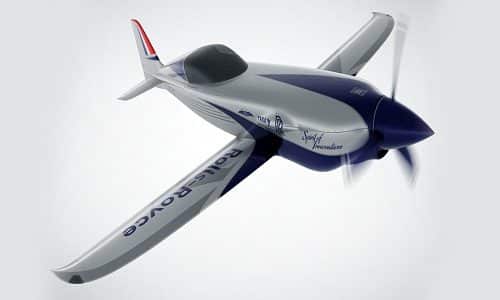Aiming to overturn the damage caused to the environment, the aircraft is a novel initiative for promoting green aviation

Rolls-Royce, one of the world’s leading companies focussed on providing state-of the-art propulsion systems and solutions, is working on the project titled ACCEL (Accelerating the Electrification of Flight) for developing an all-electric and zero-emissions aircraft. With an expectation of reaching a speed of 300-mile-per-hour, this initiative is being hailed as a major breakthrough for eco-friendly travel in the years to come.
The company plans to launch this aircraft by early 2020.
Greener air travel
The company’s initiative comes at a time when the aviation industry is seriously considering ways to decrease the impact of pollution in the environment. Last year, Air travel was held responsible for emitting 850 million tons of carbon dioxide – about 2 per cent of the total emissions generated by humans.
Through this development, the company aims to mitigate the damages done and thus establish itself as both a pioneer and a leader in green aviation.
“This plane will be powered by a state-of-the-art electrical system and the most powerful battery ever built for flight. We’re going to demonstrate its abilities in demanding test environments before going for gold in 2020 from a landing strip on the Welsh coastline,” says Matheu Parr, ACCEL project manager for Rolls-Royce.
He further adds, “We’re monitoring more than 20,000 data points per second, measuring battery voltage, temperature, and overall health of the power train, which is responsible for powering the propellers and generating thrust. We’ve already drawn a series of insights from the unique design and integration challenges. And we’re gaining the know-how to not only pioneer the field of electric-powered, zero-emissions aviation – but to lead it. At this point, our confidence is sky high.”
Speed set in sight
The current speed record for an all-electric plane is 210 miles per hour set by a Siemens aircraft back in 2017. While far from the 500-600 MPH typical of today’s commercial jets, 300 miles an hour would be a significant improvement in the emissions-free space. The B787 Dreamliner plane travels at about 560 mph. But its drawback is it being powered by jet fuel that is responsible for harmful CO2 emissions.
Rolls-Royce aims to change that by reaching speed of 300 mph without producing any such harmful emissions.
New player
Easyjet, in partnership with Wright Electric, the US manufacturing company, will be creating its own electric aircraft with an aim to launch them by 2027. While this might give Rolls-Royce a tough competition, a healthy competition in developing a viable emission-free plane will prove to be beneficial for tackling environmental challenges.
The ACCEL electric plane is partly funded by the British government and has partners including the Aerospace Technology Institute and YASA, the electric motor and controller manufacturer.






